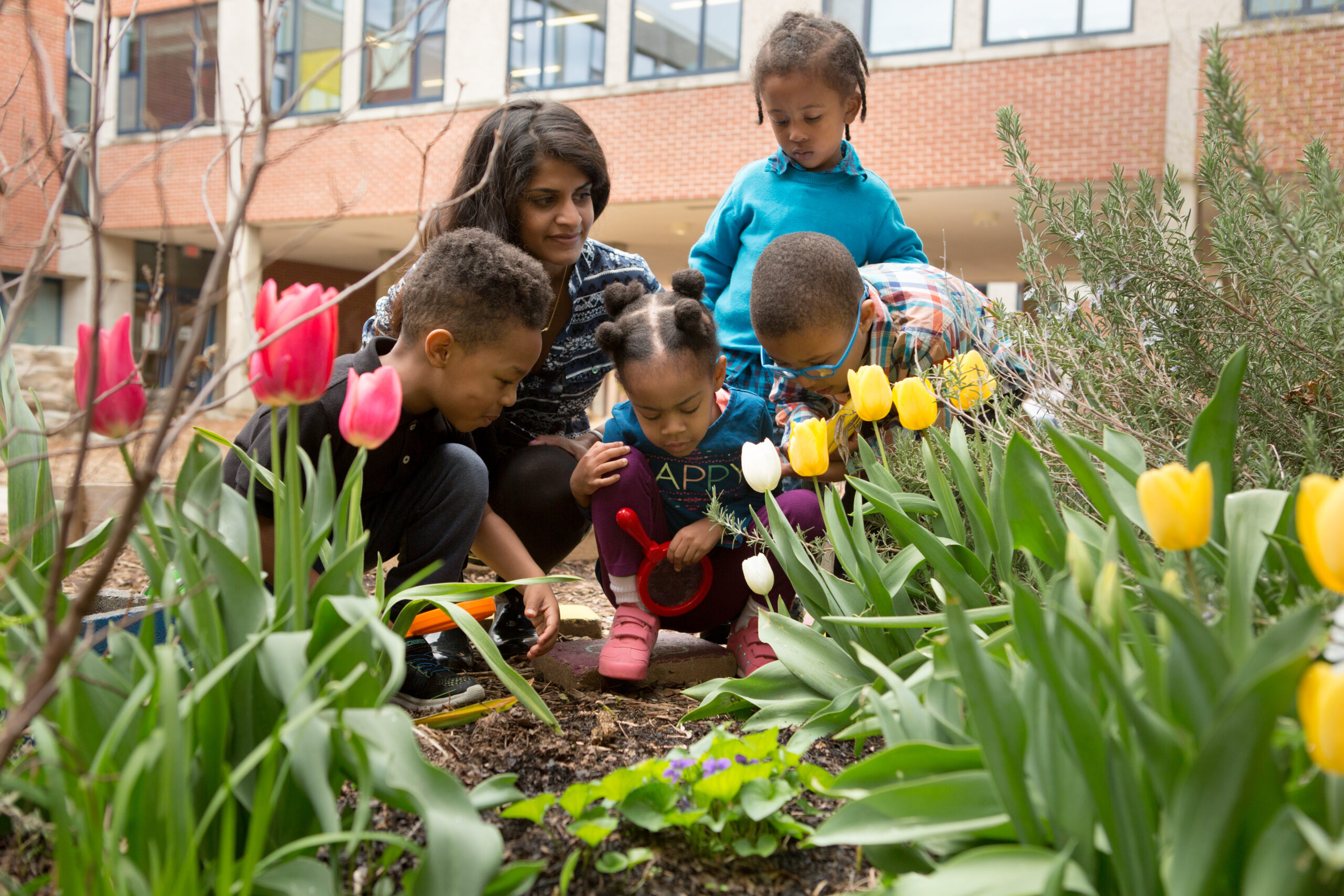In the wake of the COVID-19 pandemic, students are facing greater academic, social, and emotional challenges than ever before. Schools can’t address these needs on their own — and they shouldn’t have to.
Today, we’re proud to announce the first cohort of organizations participating in Filling the Gap, our new program that seeks to eliminate barriers keeping families from accessing learning options aligned to their children’s needs, interests, and goals. Our cohort is tackling this challenge by helping families access supplemental educational opportunities — academic, arts, cultural, and socioemotional programs that happen outside the traditional school day. Bluum, CityTutor DC, Colorado Succeeds, RESCHOOL, People for PSEO, and Youthprise will receive a combined $700,000 in grants — made possible by the Walton Family Foundation — as well as support from Bellwether experts and opportunities to learn from fellow cohort members over the next several months.
Filling the Gap is part of Bellwether’s broader effort to foster a more flexible educational ecosystem that’s more responsive to students’ needs. Earlier this year, we launched our Parent Perception Barometer, which shed new light on what parents want from schools right now. Last month, we published the first of many briefs and resources about Assembly, our vision of a more equitable system in which families can access the customized educational experiences their children need inside and outside of school.
As we showed in a recent analysis, supplemental learning opportunities are a crucial piece of this more equitable, responsive education system. They have long been associated with better outcomes for students — yet they’re often an afterthought for education leaders and policymakers. Too many families lack the information they need to find the right supplemental opportunities for their children or can’t afford the programs they learn about. And access is often inequitable: low-income students are less likely to participate in supplemental opportunities than high-income students, despite experiencing disproportionate amounts of learning loss.
The organizations in our first Filling the Gap cohort are working to expand access to these opportunities, leveraging state policies that make the work possible. We’ll be spotlighting their work with families and students in the months ahead.
More About the Cohort Members
Bluum (Idaho)
Bluum is a nonprofit organization working to make Idaho a national model for how to maximize learning outcomes for children and families. Through the Filling the Gap program, Bluum will build awareness of microgrants available through Idaho’s Empowering Parents Grant Program, which can support participation in tutoring, therapy, and a range of other supplemental education services. Bluum will also train and support schools, homeschooling associations, nonprofits, and other organizations to help families navigate the application process for the microgrants, and will collect data about families’ participation and experience with the grant program.
CityTutor DC (Washington, D.C.)
CityTutor DC (an initiative of CityBridge Education) is a coalition of schools, community organizations, and city leaders working to expand access to high-impact tutoring (HIT) for students in Washington, D.C. Over the past eighteen months, CityTutor has worked to build the city’s supply of high-impact tutoring options. Through the Filling the Gap program, they will help students and caregivers access free HIT services by directly engaging families in communities with the greatest needs, building a family engagement focus into structured touchpoints CityTutor has with schools, and helping CityTutor Hubs conduct targeted outreach to families.
Colorado Succeeds / RESCHOOL (Colorado)
Colorado Succeeds is a nonprofit, nonpartisan coalition of business leaders working to improve education across the state. RESCHOOL, a nonprofit organization also based in Colorado, works to ensure all young people have equitable access to the educational experiences they choose both in and outside of school. Through the Filling the Gap program, these two organizations will partner to provide direct support to students, families, schools, and districts to increase awareness and uptake of the Path4ward Program, which allows low-income students who graduate early from high school to receive a portion of their per-pupil funding to participate in college- and career-related learning. They will also gather data about barriers to participation and distribute scholarships of up to $500 to cover the cost of transportation, supplies and fees needed to participate in programs.
People for PSEO (MN)
People for PSEO is a nonprofit organization promoting the Post-Secondary Enrollment Options (PSEO) dual enrollment program in Minnesota, which allows high school students to enroll in free college courses at a college campus. Through the Filling the Gap program, People for PSEO will work to close the information gap that exists about PSEO, especially for Black and Latino families. They will use grant funds to lower barriers to awareness and participation among these families and conduct a targeted communications campaign to increase statewide awareness and uptake of dual enrollment.
Youthprise (MN)
Youthprise works to increase equity with and for Minnesota’s indigenous, low-income, and racially diverse youth. The organization has invested in a team of community navigators who help families take advantage of a tax-credit loan through the state’s K-12 Education Tax Credit, and use it to participate in out-of-school time activities like tutoring, academic enrichment camps, music lessons, and art classes. Through the Filling the Gap program, they will explore options to eliminate the tax prep barrier for families. They will also work to increase awareness and adoption of the tax credit among key populations by expanding their family referral program, engaging in social media marketing, and through other culturally-specific outreach efforts.
About Walton Family Foundation
The Walton Family Foundation is, at its core, a family-led foundation. Three generations of the descendants of our founders, Sam and Helen Walton, and their spouses, work together to lead the foundation and create access to opportunity for people and communities. We work in three areas: improving K-12 education, protecting rivers and oceans and the communities they support, and investing in our home region of Northwest Arkansas and the Arkansas-Mississippi Delta. To learn more, visit waltonfamilyfoundation.org.
